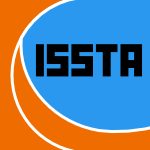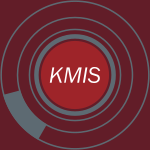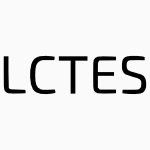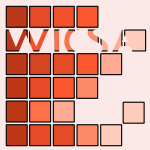70 papers:
 ITiCSE-2015-BrindaKHR #object-oriented #programming #towards
ITiCSE-2015-BrindaKHR #object-oriented #programming #towards- Towards a Competency Model for Object-Oriented Programming (TB, MK, PH, AR), p. 345.
 CHI-2015-GrayTG #design #user interface
CHI-2015-GrayTG #design #user interface- Flow of Competence in UX Design Practice (CMG, ALT, SG), pp. 3285–3294.
 CHI-2015-Vicencio-Moreira #game studies
CHI-2015-Vicencio-Moreira #game studies- Now You Can Compete With Anyone: Balancing Players of Different Skill Levels in a First-Person Shooter Game (RVM, RLM, CG), pp. 2255–2264.
 SAC-2015-ErnstKR #evaluation #network #performance
SAC-2015-ErnstKR #evaluation #network #performance- Performance evaluation of heterogeneous wireless networks considering competing objectives and viewpoints (JBE, SCK, JJPCR), pp. 680–687.
 ISSTA-2015-TanXCSLD #algorithm #optimisation
ISSTA-2015-TanXCSLD #algorithm #optimisation- Optimizing selection of competing features via feedback-directed evolutionary algorithms (THT, YX, MC, JS, YL, JSD), pp. 246–256.
 CSEET-2014-SedelmaierL #modelling #process #requirements #using
CSEET-2014-SedelmaierL #modelling #process #requirements #using- Using business process models to foster competencies in requirements engineering (YS, DL), pp. 13–22.
 CSEET-2014-ShankararamanD #challenge #design #education #re-engineering #using
CSEET-2014-ShankararamanD #challenge #design #education #re-engineering #using- Opportunities and challenges in using competencies during design and delivery of software engineering curriculum (VS, JD), pp. 179–182.
 ITiCSE-2014-Dorge #approach
ITiCSE-2014-Dorge #approach- A methodological approach to key competencies in informatics (CD), pp. 201–206.
 CHI-2014-Gray #design #evolution #user interface
CHI-2014-Gray #design #evolution #user interface- Evolution of design competence in UX practice (CMG), pp. 1645–1654.
 CSCW-2014-PreistMC #volunteer
CSCW-2014-PreistMC #volunteer- Competing or aiming to be average?: normification as a means of engaging digital volunteers (CP, EM, DC), pp. 1222–1233.
 DUXU-ELAS-2014-VilarDRNV #artificial reality #case study #using
DUXU-ELAS-2014-VilarDRNV #artificial reality #case study #using- A Pilot Study Using Virtual Reality to Investigate the Effects of Emergency Egress Signs Competing with Environmental Variables on Route Choices (EV, ED, FR, PN, EV), pp. 369–377.
 HIMI-DE-2014-JacquesF #case study #information management #student
HIMI-DE-2014-JacquesF #case study #information management #student- Personal Information Management Competences: A Case Study of Future College Students (JJ, PF), pp. 320–331.
 LCT-NLE-2014-MorGHH #assessment #design #learning #tool support
LCT-NLE-2014-MorGHH #assessment #design #learning #tool support- Designing Learning Tools: The Case of a Competence Assessment Tool (EM, AEGR, EH, MAH), pp. 83–94.
 ICPR-2014-KhanVP #multi #visual notation
ICPR-2014-KhanVP #multi #visual notation- A Generalized Search Method for Multiple Competing Hypotheses in Visual Tracking (MHK, MFV, TPP), pp. 2245–2250.
 KDIR-2014-HubwieserM #education #mining #scalability #set
KDIR-2014-HubwieserM #education #mining #scalability #set- Competency Mining in Large Data Sets — Preparing Large Scale Investigations in Computer Science Education (PH, AM), pp. 315–322.
 SEKE-2014-Peters #project management
SEKE-2014-Peters #project management- A Knowledge & Competencies Checklist for Software Project Management Success (LP), pp. 241–243.
 CSEET-2013-MeadS #assurance #roadmap
CSEET-2013-MeadS #assurance #roadmap- The software assurance competency model: A roadmap to enhance individual professional capability (NRM, DS), pp. 119–128.
 ITiCSE-2013-BergesHMBBMNSSO #education
ITiCSE-2013-BergesHMBBMNSSO #education- Developing a competency model for teaching computer science in schools (MB, PH, JM, EB, KB, MMK, JN, NS, SES, LO), p. 327.
 CHI-2013-RauARR #design #interactive #learning #why
CHI-2013-RauARR #design #interactive #learning #why- Why interactive learning environments can have it all: resolving design conflicts between competing goals (MAR, VA, NR, SR), pp. 109–118.
 SIGIR-2013-ShouML00H #recommendation
SIGIR-2013-ShouML00H #recommendation- Competence-based song recommendation (LS, KM, XL, KC, GC, TH), pp. 423–432.
 DRR-2012-Silva #algorithm #detection #evaluation #using
DRR-2012-Silva #algorithm #detection #evaluation #using- Using specific evaluation for comparing and combining competing algorithms: applying it to table column detection (ACeS).
 ITiCSE-2012-SchaferBBJSFKS #embedded #empirical
ITiCSE-2012-SchaferBBJSFKS #embedded #empirical- The empirically refined competence structure model for embedded micro- and nanosystems (AS, RB, SB, SJ, SES, DF, BK, HS), pp. 57–62.
 CAiSE-2012-StirnaP #enterprise #modelling
CAiSE-2012-StirnaP #enterprise #modelling- Purpose Driven Competency Planning for Enterprise Modeling Projects (JS, AP), pp. 662–677.
 CIKM-2012-XinKALH #design #modelling
CIKM-2012-XinKALH #design #modelling- Do ads compete or collaborate?: designing click models with full relationship incorporated (XX, IK, RA, MRL, HH), pp. 1839–1843.
 CSEET-2011-LuLL #analysis #using
CSEET-2011-LuLL #analysis #using- Competence analysis of IT professionals involved in business services — Using a qualitative method (HKL, CHL, PCL), pp. 61–70.
 ITiCSE-2011-SchaferBJSFKS #development #embedded
ITiCSE-2011-SchaferBJSFKS #development #embedded- A normative competence structure model for embedded micro- and nanosystems development (AS, RB, SJ, SES, DF, BK, HS), p. 375.
 CHI-2011-MankoffKKRW #modelling #online
CHI-2011-MankoffKKRW #modelling #online- Competing online viewpoints and models of chronic illness (JM, KK, SBK, JAR, KW), pp. 589–598.
 CSEET-2010-Rivera-IbarraRS #framework
CSEET-2010-Rivera-IbarraRS #framework- Competency Framework for Software Engineers (JGRI, JRJ, MASV), pp. 33–40.
 ITiCSE-2010-Mirolo #analysis #learning #multi #recursion #student
ITiCSE-2010-Mirolo #analysis #learning #multi #recursion #student- Learning (through) recursion: a multidimensional analysis of the competences achieved by CS1 students (CM), pp. 160–164.
 DLT-J-2008-Csuhaj-VarjuDV10
DLT-J-2008-Csuhaj-VarjuDV10- Variants of Competence-Based Derivations in CD Grammar Systems (ECV, JD, GV), pp. 549–569.
 ICEIS-SAIC-2010-DascaluDPV #assessment #performance #project management
ICEIS-SAIC-2010-DascaluDPV #assessment #performance #project management- The Impact of Competences Assessment Systems to Firm Performance — Study on Project Management e-Assessment (MID, CD, DP, BV), pp. 59–64.
 ICPR-2010-WoloszynskiK #classification #random
ICPR-2010-WoloszynskiK #classification #random- A Measure of Competence Based on Randomized Reference Classifier for Dynamic Ensemble Selection (TW, MK), pp. 4194–4197.
 KEOD-2010-FormicaMPT #enterprise #semantics
KEOD-2010-FormicaMPT #enterprise #semantics- Semantic Search for Enterprises Competencies Management (AF, MM, EP, FT), pp. 183–192.
 SAC-2010-ViroliC #composition #self
SAC-2010-ViroliC #composition #self- Chemical-inspired self-composition of competing services (MV, MC), pp. 2029–2036.
 ITiCSE-2009-BrabrandD #taxonomy #using
ITiCSE-2009-BrabrandD #taxonomy #using- Analyzing CS competencies using the SOLO taxonomy (CB, BD), p. 1.
 HCI-VAD-2009-Kroll #named #question
HCI-VAD-2009-Kroll #named #question- E-Assessment: A Suitable Alternative for Measuring Competences? (MK), pp. 543–550.
 OCSC-2009-AndersenFLN #development #game studies #using
OCSC-2009-AndersenFLN #development #game studies #using- The Coming Revolution in Competence Development: Using Serious Games to Improve Cross-Cultural Skills (BA, MF, PL, VPN), pp. 413–422.
 OCSC-2009-Raybourn #game studies
OCSC-2009-Raybourn #game studies- Intercultural Competence Game That Fosters Metacognitive Agility and Reflection (EMR), pp. 603–612.
 OCSC-2009-WillisR #mobile #student
OCSC-2009-WillisR #mobile #student- Leveraging Mobile Devices to Develop Intercultural Competency for Digital Students (MW, EMR), pp. 545–553.
 KMIS-2009-CronholmG #development
KMIS-2009-CronholmG #development- Competence Development Among IT-consultants — The Need for Collective and Structured Reflection (SC, GG), pp. 258–261.
 LCTES-2009-LeatherOW #compilation #optimisation #performance
LCTES-2009-LeatherOW #compilation #optimisation #performance- Raced profiles: efficient selection of competing compiler optimizations (HL, MFPO, BW), pp. 50–59.
 WICSA-2008-BassCKK #architecture
WICSA-2008-BassCKK #architecture- Evaluating the Software Architecture Competence of Organizations (LB, PCC, RK, MK), pp. 249–252.
 ITiCSE-2008-RomeroVP #elicitation #requirements #towards
ITiCSE-2008-RomeroVP #elicitation #requirements #towards- Toward a definition of the competences for global requirements elicitation (MR, AV, MP), p. 364.
 ITiCSE-2008-SchluterB #education
ITiCSE-2008-SchluterB #education- Characteristics and dimensions of a competence model of theoretical computer science in secondary education (KS, TB), p. 367.
 DLT-2008-Csuhaj-VarjuDV
DLT-2008-Csuhaj-VarjuDV- Some New Modes of Competence-Based Derivations in CD Grammar Systems (ECV, JD, GV), pp. 228–239.
 CHI-2008-LarsenB #collaboration
CHI-2008-LarsenB #collaboration- Competence articulation: alignment of competences and responsibilities in synchronous telemedical collaboration (SBL, JEB), pp. 553–562.
 ICEIS-ISAS2-2008-RaoRO #elicitation #ontology
ICEIS-ISAS2-2008-RaoRO #elicitation #ontology- Knowledge Elicitation Techniques for Deriving Competency Questions for Ontologies (LR, HR, KMOB), pp. 105–110.
 WICSA-2007-ClementsKK #architecture
WICSA-2007-ClementsKK #architecture- Working Session: Software Architecture Competence (PCC, RK, MK), p. 27.
 HCI-IDU-2007-EschenbrennerN #identification #information management #what
HCI-IDU-2007-EschenbrennerN #identification #information management #what- What Makes Them So Special?: Identifying Attributes of Highly Competent Information System Users (BE, FFHN), pp. 736–745.
 SAC-2007-CaetanoPT #representation
SAC-2007-CaetanoPT #representation- Representing organizational competencies (AC, JP, JMT), pp. 1257–1262.
 ICML-2005-CrandallG #game studies #learning
ICML-2005-CrandallG #game studies #learning- Learning to compete, compromise, and cooperate in repeated general-sum games (JWC, MAG), pp. 161–168.
 SEKE-2005-ArdimentoBBV #empirical #maintenance
SEKE-2005-ArdimentoBBV #empirical #maintenance- Empirical Investigation for Building Competences: A case for Extraordinary Maintenance (PA, AB, NB, GV), pp. 695–700.
 DLT-2004-BeekCHV #on the
DLT-2004-BeekCHV #on the- On Competence in CD Grammar Systems (MHtB, ECV, MH, GV), pp. 76–88.
 ICEIS-v3-2004-HarzallahB #case study #modelling
ICEIS-v3-2004-HarzallahB #case study #modelling- Competence Modeling and Management: A Case Study (MH, GB), pp. 350–358.
 ICML-2004-BaskiotisS #approach
ICML-2004-BaskiotisS #approach- C4.5 competence map: a phase transition-inspired approach (NB, MS).
 ICPR-v1-2004-MansillaH #classification #on the
ICPR-v1-2004-MansillaH #classification #on the- On Classifier Domains of Competence (EBiM, TKH), pp. 136–139.
 SEKE-2003-BarberL #architecture #framework #specification #using
SEKE-2003-BarberL #architecture #framework #specification #using- Specifying and Analyzing Agent Architectures using the Agent Competency Framework (KSB, DNL), pp. 232–239.
 SAC-2003-Valverde-AlbacetePCDNM #design #named
SAC-2003-Valverde-AlbacetePCDNM #design #named- InterMediActor: an Environment for Instructional Content Design Based on Competences (FJVA, RPJ, JCS, PDP, ANV, HYMB), pp. 575–579.
 DAC-2002-CabodiCQ #bound #model checking #question #satisfiability
DAC-2002-CabodiCQ #bound #model checking #question #satisfiability- Can BDDs compete with SAT solvers on bounded model checking? (GC, PC, SQ), pp. 117–122.
 ICPR-v1-2002-LamarreC #modelling #using
ICPR-v1-2002-LamarreC #modelling #using- Background Subtraction Using Competing Models in the Block-DCT Domain (ML, JJC), pp. 299–302.
 SEKE-2002-HarzallahLT #education #modelling #named
SEKE-2002-HarzallahLT #education #modelling #named- CommOnCV: modelling the competencies underlying a curriculum vitae (MH, ML, FT), pp. 65–71.
 ITiCSE-2000-Manne
ITiCSE-2000-Manne- Competing in computing (poster session) (FM), p. 190.
 CAV-2000-NamjoshiT #composition #on the #reasoning
CAV-2000-NamjoshiT #composition #on the #reasoning- On the Competeness of Compositional Reasoning (KSN, RJT), pp. 139–153.
 HCI-CCAD-1999-Tielsch #health #interface #network #safety
HCI-CCAD-1999-Tielsch #health #interface #network #safety- Call center — interface between companies’ practice and the competence network of safety and health at work in North-Rhine-Westfalia (RT), pp. 1332–1336.
 HCI-CC-1997-KoisoSYN #communication
HCI-CC-1997-KoisoSYN #communication- Communication Model in Emergency Which Considers Competence, Duty and Responsibility (TK, NS, TY, SN), pp. 49–52.
 HCI-CC-1997-RobertsonB #development
HCI-CC-1997-RobertsonB #development- Competence Development in Ten High Tech Companies in Silicon Valley (MMR, GB), pp. 355–359.
 ICML-1995-CrawH #network #refinement
ICML-1995-CrawH #network #refinement- Protein Folding: Symbolic Refinement Competes with Neural Networks (SC, PH), pp. 133–141.
 HCI-ACS-1993-HolmB #knowledge base
HCI-ACS-1993-HolmB #knowledge base- Human Competence, Work Organisation and Knowledge Based System (PH, GB), pp. 970–975.
 DAC-1989-Keutzer #architecture #design #generative #logic #synthesis
DAC-1989-Keutzer #architecture #design #generative #logic #synthesis- Three Competing Design Methodologies for ASIC’s: Architectual Synthesis, Logic Synthesis, Logic Synthesis and Module Generation (KK), pp. 308–313.
 POPL-1977-Pratt #performance #programming
POPL-1977-Pratt #performance #programming- The Competence/Performance Dichotomy in Programming (VRP), pp. 194–200.
 ITiCSE-2015-BrindaKHR #object-oriented #programming #towards
ITiCSE-2015-BrindaKHR #object-oriented #programming #towards CHI-2015-GrayTG #design #user interface
CHI-2015-GrayTG #design #user interface CHI-2015-Vicencio-Moreira #game studies
CHI-2015-Vicencio-Moreira #game studies SAC-2015-ErnstKR #evaluation #network #performance
SAC-2015-ErnstKR #evaluation #network #performance ISSTA-2015-TanXCSLD #algorithm #optimisation
ISSTA-2015-TanXCSLD #algorithm #optimisation CSEET-2014-SedelmaierL #modelling #process #requirements #using
CSEET-2014-SedelmaierL #modelling #process #requirements #using CSEET-2014-ShankararamanD #challenge #design #education #re-engineering #using
CSEET-2014-ShankararamanD #challenge #design #education #re-engineering #using ITiCSE-2014-Dorge #approach
ITiCSE-2014-Dorge #approach CHI-2014-Gray #design #evolution #user interface
CHI-2014-Gray #design #evolution #user interface CSCW-2014-PreistMC #volunteer
CSCW-2014-PreistMC #volunteer DUXU-ELAS-2014-VilarDRNV #artificial reality #case study #using
DUXU-ELAS-2014-VilarDRNV #artificial reality #case study #using HIMI-DE-2014-JacquesF #case study #information management #student
HIMI-DE-2014-JacquesF #case study #information management #student LCT-NLE-2014-MorGHH #assessment #design #learning #tool support
LCT-NLE-2014-MorGHH #assessment #design #learning #tool support ICPR-2014-KhanVP #multi #visual notation
ICPR-2014-KhanVP #multi #visual notation KDIR-2014-HubwieserM #education #mining #scalability #set
KDIR-2014-HubwieserM #education #mining #scalability #set SEKE-2014-Peters #project management
SEKE-2014-Peters #project management CSEET-2013-MeadS #assurance #roadmap
CSEET-2013-MeadS #assurance #roadmap ITiCSE-2013-BergesHMBBMNSSO #education
ITiCSE-2013-BergesHMBBMNSSO #education CHI-2013-RauARR #design #interactive #learning #why
CHI-2013-RauARR #design #interactive #learning #why SIGIR-2013-ShouML00H #recommendation
SIGIR-2013-ShouML00H #recommendation DRR-2012-Silva #algorithm #detection #evaluation #using
DRR-2012-Silva #algorithm #detection #evaluation #using ITiCSE-2012-SchaferBBJSFKS #embedded #empirical
ITiCSE-2012-SchaferBBJSFKS #embedded #empirical CAiSE-2012-StirnaP #enterprise #modelling
CAiSE-2012-StirnaP #enterprise #modelling CIKM-2012-XinKALH #design #modelling
CIKM-2012-XinKALH #design #modelling CSEET-2011-LuLL #analysis #using
CSEET-2011-LuLL #analysis #using ITiCSE-2011-SchaferBJSFKS #development #embedded
ITiCSE-2011-SchaferBJSFKS #development #embedded CHI-2011-MankoffKKRW #modelling #online
CHI-2011-MankoffKKRW #modelling #online CSEET-2010-Rivera-IbarraRS #framework
CSEET-2010-Rivera-IbarraRS #framework ITiCSE-2010-Mirolo #analysis #learning #multi #recursion #student
ITiCSE-2010-Mirolo #analysis #learning #multi #recursion #student DLT-J-2008-Csuhaj-VarjuDV10
DLT-J-2008-Csuhaj-VarjuDV10 ICEIS-SAIC-2010-DascaluDPV #assessment #performance #project management
ICEIS-SAIC-2010-DascaluDPV #assessment #performance #project management ICPR-2010-WoloszynskiK #classification #random
ICPR-2010-WoloszynskiK #classification #random KEOD-2010-FormicaMPT #enterprise #semantics
KEOD-2010-FormicaMPT #enterprise #semantics SAC-2010-ViroliC #composition #self
SAC-2010-ViroliC #composition #self ITiCSE-2009-BrabrandD #taxonomy #using
ITiCSE-2009-BrabrandD #taxonomy #using HCI-VAD-2009-Kroll #named #question
HCI-VAD-2009-Kroll #named #question OCSC-2009-AndersenFLN #development #game studies #using
OCSC-2009-AndersenFLN #development #game studies #using OCSC-2009-Raybourn #game studies
OCSC-2009-Raybourn #game studies OCSC-2009-WillisR #mobile #student
OCSC-2009-WillisR #mobile #student KMIS-2009-CronholmG #development
KMIS-2009-CronholmG #development LCTES-2009-LeatherOW #compilation #optimisation #performance
LCTES-2009-LeatherOW #compilation #optimisation #performance WICSA-2008-BassCKK #architecture
WICSA-2008-BassCKK #architecture ITiCSE-2008-RomeroVP #elicitation #requirements #towards
ITiCSE-2008-RomeroVP #elicitation #requirements #towards ITiCSE-2008-SchluterB #education
ITiCSE-2008-SchluterB #education DLT-2008-Csuhaj-VarjuDV
DLT-2008-Csuhaj-VarjuDV CHI-2008-LarsenB #collaboration
CHI-2008-LarsenB #collaboration ICEIS-ISAS2-2008-RaoRO #elicitation #ontology
ICEIS-ISAS2-2008-RaoRO #elicitation #ontology WICSA-2007-ClementsKK #architecture
WICSA-2007-ClementsKK #architecture HCI-IDU-2007-EschenbrennerN #identification #information management #what
HCI-IDU-2007-EschenbrennerN #identification #information management #what SAC-2007-CaetanoPT #representation
SAC-2007-CaetanoPT #representation ICML-2005-CrandallG #game studies #learning
ICML-2005-CrandallG #game studies #learning SEKE-2005-ArdimentoBBV #empirical #maintenance
SEKE-2005-ArdimentoBBV #empirical #maintenance DLT-2004-BeekCHV #on the
DLT-2004-BeekCHV #on the ICEIS-v3-2004-HarzallahB #case study #modelling
ICEIS-v3-2004-HarzallahB #case study #modelling ICML-2004-BaskiotisS #approach
ICML-2004-BaskiotisS #approach ICPR-v1-2004-MansillaH #classification #on the
ICPR-v1-2004-MansillaH #classification #on the SEKE-2003-BarberL #architecture #framework #specification #using
SEKE-2003-BarberL #architecture #framework #specification #using SAC-2003-Valverde-AlbacetePCDNM #design #named
SAC-2003-Valverde-AlbacetePCDNM #design #named DAC-2002-CabodiCQ #bound #model checking #question #satisfiability
DAC-2002-CabodiCQ #bound #model checking #question #satisfiability ICPR-v1-2002-LamarreC #modelling #using
ICPR-v1-2002-LamarreC #modelling #using SEKE-2002-HarzallahLT #education #modelling #named
SEKE-2002-HarzallahLT #education #modelling #named ITiCSE-2000-Manne
ITiCSE-2000-Manne CAV-2000-NamjoshiT #composition #on the #reasoning
CAV-2000-NamjoshiT #composition #on the #reasoning HCI-CCAD-1999-Tielsch #health #interface #network #safety
HCI-CCAD-1999-Tielsch #health #interface #network #safety HCI-CC-1997-KoisoSYN #communication
HCI-CC-1997-KoisoSYN #communication HCI-CC-1997-RobertsonB #development
HCI-CC-1997-RobertsonB #development ICML-1995-CrawH #network #refinement
ICML-1995-CrawH #network #refinement HCI-ACS-1993-HolmB #knowledge base
HCI-ACS-1993-HolmB #knowledge base DAC-1989-Keutzer #architecture #design #generative #logic #synthesis
DAC-1989-Keutzer #architecture #design #generative #logic #synthesis POPL-1977-Pratt #performance #programming
POPL-1977-Pratt #performance #programming









